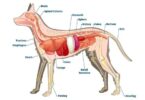As devoted pet owners, ensuring our furry companions receive the right nutrition is a top priority. One common question that often arises is whether adult dogs can safely consume puppy food. In this article, we will delve into the nuances of this query, exploring the differences between adult and puppy food, potential risks, and the feasibility of occasional indulgence.
Differences Between Adult Dog Food and Puppy Food
Understanding the nutritional requirements of adult dogs versus puppies is crucial. Adult dogs require a balanced diet that meets their specific needs, while puppies have distinct dietary demands for growth and development. Key ingredients in adult dog food, such as appropriate protein levels and specific vitamins, contribute to the overall health of mature canines.
Risks of Feeding Puppy Food to Adult Dogs
Feeding adult dogs puppy food comes with potential risks, primarily due to the variance in nutrient levels. Excess nutrients can lead to health issues, impacting weight and digestion. It is vital to recognize these risks to make informed decisions about your dog’s diet.
Can Adult Dogs Occasionally Eat Puppy Food?
While the general rule is to provide adult dogs with food tailored to their life stage, occasional indulgence in puppy food is acceptable. Moderation is key, and offering puppy food as a treat can add variety to your dog’s diet. However, it’s crucial to avoid overdoing it to prevent potential health complications.
Transitioning from Puppy to Adult Dog Food
If you’re considering transitioning your dog from puppy to adult food, a gradual shift is recommended. Monitoring your pet for any adverse reactions during this process is essential. This ensures a smooth transition without compromising your dog’s well-being.
Consulting with Veterinarians
When it comes to your dog’s diet, seeking professional advice is invaluable. Veterinarians can customize diet plans based on your dog’s individual needs, taking into account factors like breed, size, and overall health. Regular check-ups and consultations contribute to the overall health and longevity of your furry friend.
Healthy Alternatives for Treats
Choosing suitable treats for adult dogs is essential. Whether store-bought or homemade, treats should complement your dog’s diet. Explore healthy alternatives to puppy food for snacks, ensuring your pet enjoys flavorful options without compromising nutritional balance.
Understanding Dog Nutrition Labels
Reading and interpreting dog food labels can be overwhelming. It’s essential to understand the information provided, especially regarding age-appropriateness. This knowledge empowers pet owners to make informed choices and select the most suitable food for their dogs.
Common Misconceptions About Dog Nutrition
The internet is rife with misconceptions about dog nutrition. This section aims to address and debunk common myths related to puppy food and adult dog diets. Clearing these misconceptions is crucial for making informed decisions about your dog’s nutrition.
Tips for Maintaining Optimal Dog Health
Besides a well-balanced diet, other factors contribute to your dog’s overall health. Regular exercise, proper hydration, and grooming practices play integral roles. This section provides practical tips to ensure your dog enjoys a happy and healthy life.
Ensuring a Balanced Diet for Dogs of All Ages
Variety is the spice of life, even for dogs. This section emphasizes the importance of incorporating diverse elements into your dog’s meals. From protein sources to essential vitamins, a well-rounded diet contributes to your pet’s overall well-being.
The Impact of Breed on Dietary Needs
Different dog breeds have varied dietary requirements. Tailoring your dog’s diet based on its breed ensures that specific needs are met. Understanding these variations is key to providing optimal nutrition for dogs of all shapes and sizes.
Signs of Nutritional Imbalance in Dogs
Recognizing symptoms of nutritional deficiencies is crucial for proactive pet care. Changes in behavior, appearance, or energy levels may indicate underlying health issues. This section guides pet owners on identifying potential red flags.
Myths Surrounding Puppy and Adult Dog Food Compatibility
Dispelling common myths is essential for making informed decisions about your dog’s diet. This section addresses prevalent misconceptions and provides clarity on the compatibility of puppy and adult dog food.
Conclusion
In conclusion, the question of whether adult dogs can eat puppy food requires a nuanced understanding. While occasional indulgence is acceptable, it’s crucial to prioritize a balanced diet tailored to your dog’s life stage. Consulting with veterinarians, understanding nutrition labels, and debunking myths contribute to informed pet care.







Leave a Comment